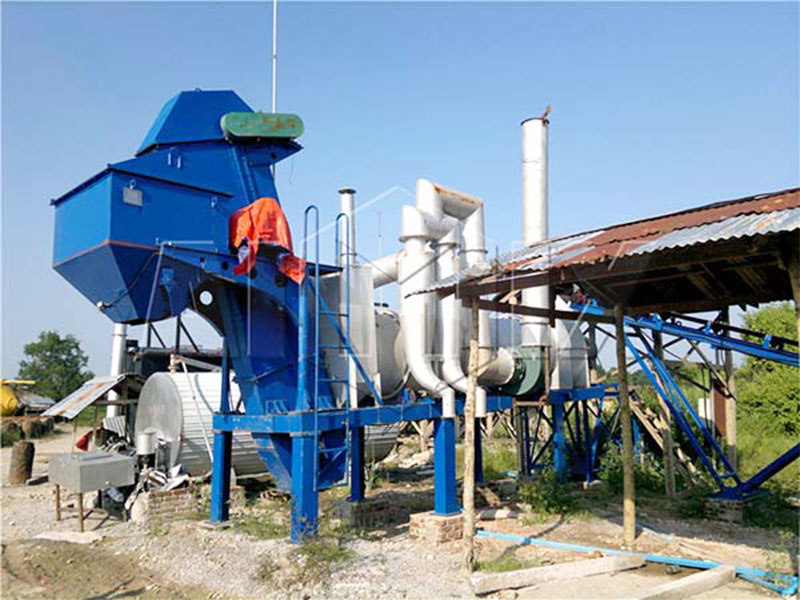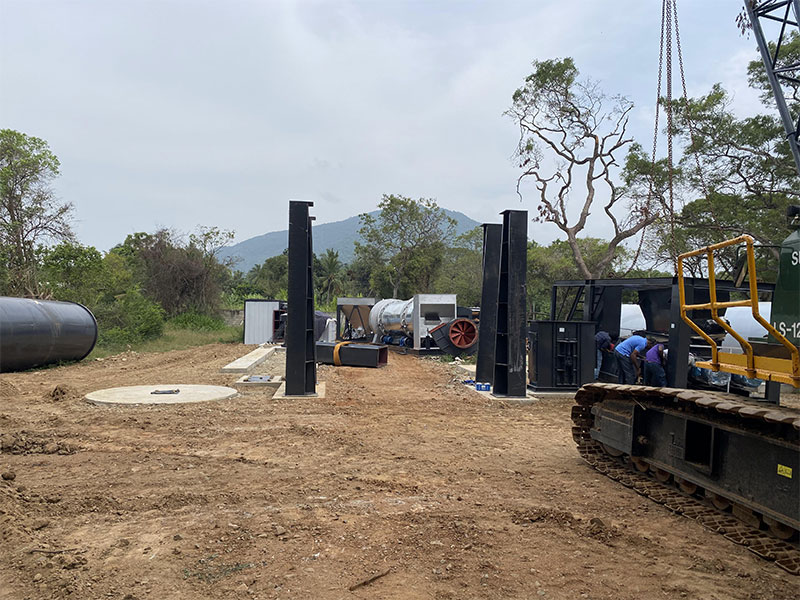Selecting the right size and capacity of an asphalt mixing plant is crucial for ensuring efficient operation, optimizing production output, and meeting the demands of your specific projects. Factors such as project scope, production requirements, material specifications, and budget constraints play a significant role in determining the appropriate size and capacity of the plant.
Assess Your Production Requirements
Start by assessing your production requirements based on the volume of asphalt needed for your projects. Consider factors such as project size, duration, and frequency of asphalt production. Determine the average daily and peak hourly production rates required to meet project deadlines and fulfill contractual obligations. Your production requirements will guide the selection of a continuous asphalt mixing plant with the appropriate capacity to handle your workload efficiently.

Consider Project Specifications and Mix Designs
Evaluate the specifications and mix designs required for your projects to determine the types and quantities of asphalt mixes needed. Different projects may require different types of asphalt mixes, such as hot mix asphalt (HMA), warm mix asphalt (WMA), or recycled asphalt pavement (RAP) mixes. Consider the materials, additives, and production processes required to achieve the desired mix designs and meet regulatory requirements and performance standards.
Evaluate Available Space and Site Conditions
Assess the available space and site conditions where the asphalt mixing plant will be installed and operated. Consider factors such as land area, layout, topography, access roads, utilities, environmental considerations, and zoning regulations. Ensure that the site can accommodate the footprint, layout, and infrastructure requirements of the asphalt plant, including storage silos, aggregate bins, mixing units, and ancillary equipment.
Determine Budgetary Constraints and Cost Considerations
Establish budgetary constraints and cost considerations for acquiring, installing, and operating the asphalt batch mixing plant. Determine your capital investment budget, operating expenses, and return on investment (ROI) expectations. Compare the costs associated with different plant sizes, capacities, configurations, and features to identify the most cost-effective solution that meets your production requirements and budgetary constraints.

Consult with Industry Experts and Equipment Suppliers
Seek guidance and expertise from industry experts, asphalt plant manufacturers, and equipment suppliers to evaluate your options and make informed decisions. Consult with experienced professionals who can provide insights into plant selection, design considerations, equipment specifications, and technological advancements. Engage in discussions, conduct site visits, and review case studies to gain a better understanding of available options and best practices in asphalt plant operation.
Evaluate Future Growth and Flexibility Needs
Consider your future growth and flexibility needs when selecting the size and capacity of the mobile asphalt plant. Anticipate changes in market demand, project requirements, regulatory standards, and technological advancements that may impact your operations. Choose a plant that offers scalability, modularity, and flexibility to accommodate future expansion, upgrades, and modifications as your business evolves and grows.
Analyze Performance and Efficiency Metrics
Analyze performance and efficiency metrics of asphalt mixing plants to compare different models and configurations. Evaluate factors such as production output, energy consumption, fuel efficiency, emissions levels, material utilization, and overall operational efficiency. Look for features, technologies, and innovations that enhance productivity, reduce operating costs, and minimize environmental impact while maintaining high-quality asphalt production.
Consider Regulatory Compliance and Environmental Impact
Ensure that the asphalt mixing plant complies with regulatory requirements and environmental standards governing air quality, noise levels, emissions control, and waste management. Choose equipment and technologies that incorporate sustainable practices, energy-saving measures, and pollution prevention strategies to minimize environmental impact and enhance sustainability in asphalt production.
Conclusion
In conclusion, determining the right size and capacity of an asphalt mixing plant requires careful consideration of production requirements, project specifications, site conditions, budgetary constraints, future growth prospects, performance metrics, regulatory compliance, and environmental considerations. By assessing your needs, consulting with industry experts, and evaluating available options, you can select a portable asphalt batch plant that optimizes efficiency, productivity, and sustainability while meeting the demands of your operations and delivering high-quality asphalt products for your projects. Investing in the right asphalt mixing plant is essential for achieving success and competitiveness in the asphalt industry.